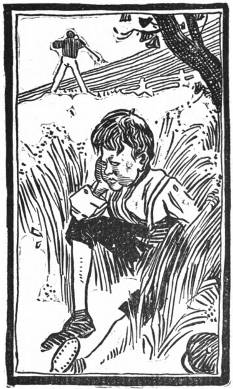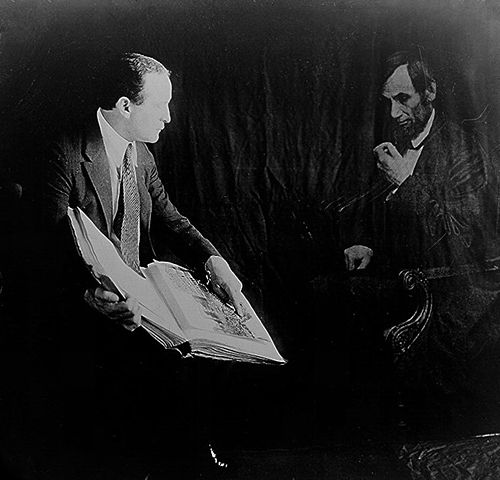brabble
v. to quarrel about trifles
Search Results for: in a word
In a Word
opuscule
n. a musical or literary work of small size
In 1965 poet Aram Saroyan wrote a poem consisting of a single word, lighght. George Plimpton included it in the American Literary Anthology, and Saroyan received a $500 cash award from the National Endowment for the Arts.
Perhaps to mock this, in 1972 Dave Morice published Matchbook, a literary magazine whose inch-square pages were stapled inside working matchbooks. Edited by the fictional Joyce Holland, each issue featured nine one-word poems submitted by contributors. Examples:
apocatastasis (Allen Ginsberg)
borken (Keith Abbott)
cerealism (Fletcher Copp)
cosmicpolitan (Morty Sklar)
embooshed (Cinda Wormley)
gulp (Pat Paulsen)
Joyce (Andrei Codrescu)
meeeeeeeeeeeeee (Duane Ackerson)
puppylust (P.J. Casteel)
sixamtoninepm (Kit Robinson)
underwhere (Carol DeLugach)
zoombie (Sheila Heldenbrand)
The longest submission, Trudi Katchmar’s whahavyagotthasgudtareedare, appeared as a fold-out.
In a Word
frustraneous
adj. useless; unprofitable

One Day a Caddy sat in the Long Grass near the Ninth Hole and wondered if he had a Soul. His Number was 27, and he almost had forgotten his Real Name.
As he sat and Meditated, two Players passed him. They were going the Long Round, and the Frenzy was upon them. They followed the Gutta Percha Balls with the intent swiftness of trained Bird Dogs, and each talked feverishly of Brassy Lies, and getting past the Bunker, and Lofting to the Green, and Slicing into the Bramble — each telling his own Game to the Ambient Air, and ignoring what the other Fellow had to say.
As they did the St. Andrews Full Swing for eighty Yards apiece and then Followed Through with the usual Explanations of how it Happened, the Caddy looked at them and Reflected that they were much inferior to his Father.
His Father was too Serious a Man to get out in Mardi Gras Clothes and hammer a Ball from one Red Flag to another.
His Father worked in a Lumber Yard.
He was an Earnest Citizen, who seldom Smiled, and he knew all about the Silver Question and how J. Pierpont Morgan done up a Free People on the Bond Issue.
The Caddy wondered why it was that his Father, a really Great Man, had to shove Lumber all day and could seldom get one Dollar to rub against another, while these superficial Johnnies who played Golf all the Time had Money to Throw at the Birds. The more he Thought the more his Head ached.
MORAL: Don’t try to Account for Anything.
— George Ade, Fables in Slang, 1899
In a Word
inwit
n. reason, intellect, understanding
outwit
n. the faculty of observing the world
In a Word
nudiustertian
adj. of the day before yesterday
ereyesterday
adv. on the day before yesterday
yestreen
n. yesterday evening
yester-afternoon
adv. yesterday afternoon
yesternoon
n. yesterday at noon
pridian
adj. of or relating to the previous day
yestern
adj. of yesterday
hesternal
adj. of yesterday
yesternight
adv. last night
hodiernal
adj. of or belonging to the present day
overmorrow
adv. on the day after tomorrow
In a Word
vespine
adj. pertaining to wasps
vespiary
n. a nest of wasps
Lord Dunsany and John Drinkwater were appearing as guests of honor at the Poetry Society of America when they fell into a friendly dispute over the relative merits of rhymed verse and rhythmical prose. Dunsany asked, “Supposing you had a line of rhymed verse ending with the word wasp. Where, I ask you, could you find a rhyme for wasp?”
In the words of the Boston Transcript‘s Alice Lawton, “That was the evening’s Parthian shot. Mr. Drinkwater produced no rhyme for ‘wasp.'”
But Arthur Guiterman, who was in the audience, later recalled, “You can find a rhyme for wasp. There is a perfectly good one in the dictionary. I found it at home that night. It is knosp and means a flower bud, or a budlike architectural ornament. Of course, having found it, I had to use it at once.”
I saw a Melancholy Wasp
Upon a Purple Clover Knosp,
Who wept, “The Poets do me Wrong,
Excluding me from Noble Song —
Though Pure am I and Wholly Crimeless —
Because, they say, my Name is Rhymeless!
Oh, had I but been born a Bee,
With Heaps of Words to Rhyme with me,
I should not want for Panegyrics
In Sonnets, Epics, Odes and Lyrics!
Will no one free me from the Curse
That bars my Race from Lofty Verse?”
“My Friend, that Little Thing I’ll care for
At once,” said I — and that is wherefore
So tenderly I set that Wasp
Upon a Purple Clover Knosp.
In a Word

pilcrow
n. the paragraph sign
In a Word
oche
n. the line behind which darts players must stand
aimcrier
n. a person who cries “Aim!” to an archer; an applauder or encourager
In a Word

transpicuous
adj. transparent
In 1922, magician Harry Price published “Cold Light on Spiritualistic Phenomena” in the Journal of the Society for Psychical Research, showing that so-called “spirit photographs” could be created using simple double exposures. In support of the exposé, Harry Houdini had himself photographed with Abraham Lincoln.
In a Word
disbosom
v. to reveal or confess
